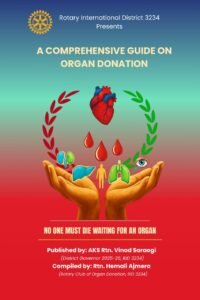International Document Verification and Live Organ Transplantation in India: Understanding & Using the Apostille System
In today’s globalized world, people often move across borders for better healthcare, education, or work opportunities. Legal processes and cross-country requirements, like document authentication, can be complex—especially in sensitive areas like live organ transplantation.
Here’s a comprehensive look at the Apostille system, how it simplifies international document verification, and its critical application for foreign patients seeking living organ donation in India.
What Is the Apostille System?
The Apostille system is an internationally accepted method for certifying the authenticity of public documents. Established by the Hague Convention of October 5, 1961, it aims to simplify the process for documents to be legally recognized in other member countries.
Key Points:
- Purpose: Allows documents (e.g., birth certificates, marriage certificates, educational degrees) issued in one member country to be accepted as genuine in others without further authentication.
- Process:
- The document is first authenticated by the local or state authority (e.g., notary or relevant government agency).
- The designated authority of the issuing country (such as the Ministry of External Affairs in India) attaches an apostille certificate or sticker.
- The apostilled document is ready for international use in other Hague member countries, requiring no further embassy or consular legalization.
- e-Apostilles: Many countries, including India, now provide electronic apostilles for increased security and convenience.
Signatory Countries
As of 2025, over 120 countries are part of the Hague Apostille Convention, including:
- India, United States, United Kingdom, France, Germany, Australia, Japan, Brazil, South Africa, Russia, Italy, Mexico, Netherlands, Switzerland, Ireland, Norway, and many more across all continents.
Note: If a document is to be used in a country that is NOT a member, traditional embassy or consular attestation is still required.
The Apostille System in Action: Living Organ Donation for Foreign Patients in India
India is a sought-after destination for advanced healthcare, including organ transplant surgeries. However, cross-border procedures—especially organ donation—are governed by strict legal frameworks to prevent exploitation and ensure ethical practice.
Legal Framework for Living Organ Donation
- Regulated Under: The Transplantation of Human Organs and Tissues Act (THOTA), 1994.
- Who Can Donate: Only near relatives (spouse, parent, child, sibling, grandparent, grandchild) can participate in living donations across borders.
- Visa Requirements: Both donor and recipient must enter India on a medical visa specifically for organ transplantation.
How Document Verification Works
- Proof of Relationship:
- Must be clearly established, often certified by the embassy of the donor’s or recipient’s country using standardized forms.
- Required Documents:
- Passports, address proofs, birth or marriage certificates, relationship proofs, medical and psychological reports, police clearance, affidavits of consent, and certification of medical fitness.
- Submission:
- All documentation is submitted to the hospital or a state-level Authorization Committee for approval before any surgical procedure.
Role of the Apostille System in Document Verification
- Apostille Requirement:
- Any official document (birth certificates, relationship proofs, medical certificates, affidavits) issued in a Hague Convention member country must be apostilled in its country of origin for legal acceptance in India.
- Documents from India to be used abroad are apostilled by the Indian Ministry of External Affairs.
- Process:
-
- Local or state-level authentication (often notarial attestation).
- Submission to the designated authority in the issuing country for apostille certification.
- Once apostilled, the document is accepted in India with no further need for embassy legalization.
- e-Apostille:
-
- Digital apostille options (like India’s e-Sanad) streamline the process, especially for academic and personal documents.
Example Scenario
A foreign patient and their near-relative donor wish to travel to India for a kidney transplant:
- Their birth certificates, proof of relationship, and required medical documents from their home country are apostilled by their government’s designated authority.
- These apostilled documents are presented to Indian hospital authorities and the Authorization Committee, satisfying the Indian legal requirement for international document verification.
Summary and Key Takeaways
- The Apostille system, a result of the 1961 Hague Convention, simplifies how documents are authenticated and recognized between member countries.
- For living organ donation in India involving foreign nationals, apostilled documents are essential for proving the donor-recipient relationship and satisfying hospital and legal authorities.
- An apostilled document eliminates the need for further consular attestation, making international medical procedures smoother and more efficient.
- For non-member countries, traditional embassy certification is still necessary.
- Ultimately, the final approval for any transplant rests with the Authorization Committee in India, and commercial trading is strictly prohibited.
- Under THOTA Rule 2014 having FORM 21 and a no objection certificate from the foreign embassy does not and has not served the purpose in the past and hence need to use this apostle system for the verification of documents. There is nothing in the rules which says apostille system can not be used.
In short: If you are considering cross-border medical procedures, especially organ transplantation in India, understanding the Apostille system is vital. It ensures your documents are recognized without hassle, helping you focus on what matters most—your health and well-being. At same time Transplant coordinators, hospital management and authorization committee can make their decision with confidence. Time to learn and adopt this system for live international patient’s organ transplant in India.
This blog is by Advocate Prashant Ajmera, who co-founded OneIneiOneLaw.org — a site all about organ donation laws in India. https://oneindiaonelaw.org/contact/
OUR MISSION
Our mission is to promote a clear, consistent, and unambiguous implementation of The Transplantation of Human Organs and Tissues Act, 1994 and the Transplantation of Human Organs and Tissues Rules, 2014 in every hospital across India. We aim to ensure that every patient is able to access organ transplantation without facing any legal complexities or inconsistencies.
CONTACT US
- Office +91-9157184643
- info@oneindiaonelaw.org
- One India One Law - Copyright 2023
- PSR (Professional Social Responsibility) an initiative of Ajmera Law Group | Donation not accepted
- info@oneindiaonelaw.org



